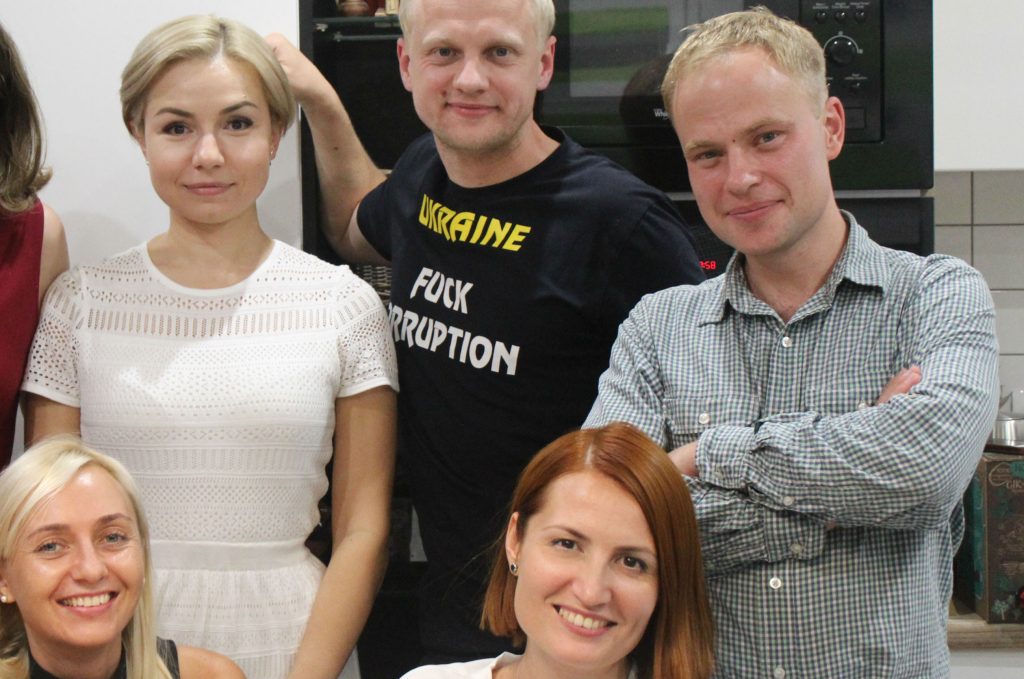On July 21, Ukrainians elected a new parliament that is younger, less experienced, happily contains more women than the previous one, and includes the country’s first African Ukrainian. Five political parties will enter the next parliament, and four of the five support a Western path for Ukraine. But will the new parliament be more or less reform minded than the previous one? In 2014, a number of new faces entered parliament, mainly from civil society and journalism, and all but two of those self-described Euro-Optimists failed to win reelection.
Who are the new reform voices to watch in the next parliament? These are my top nine:
- Oleg Makarov (Holos), a partner with the law firm Vasil Kisil, got his start in the Kyiv city council. Makarov is widely regarded as one of the best attorneys in Kyiv. He’s virtually unknown in the West and he’s shy, but he’s brilliant, hardworking, and likely to master all the parliamentary rules in a month or less – if he hasn’t already.
- Andrii Osadchuk (Holos), is a natural communicator, attorney, and expert on telecommunications. Osadchuk can distill complicated concepts simply to both experts and ordinary people. Osadchuk has the right personality to be a natural leader under Slava Vakarchuk, since he has experience, emotional intelligence, and good political acumen. Osadchuk’s father was in the parliament in the early 90s, so politics runs in the blood.
- Yaroslav Yurchyshyn (Holos), the former executive director of Transparency International-Ukraine, plays an important role in the party. Holos leader Vakarchuk trusts him and Yaroslav’s conservative Catholic background and experience with the scouting organization Plast make him a key player. It’s easy to underestimate his gentle exterior, but he’s an observant and skillful negotiator.
- Oleksandra Ustinova (Holos): Perhaps the most petite member of Holos, she may be the most energetic and the toughest advocate. Prior to her year at Stanford University where she was an Ukrainian Emerging Leader who studied with Francis Fukuyama, Ustinova was a board member at the Anti-Corruption Action Center, the most outspoken and powerful anti-corruption watchdog in Ukraine. Ustinova personally knows a great deal about health care and has a strong grasp on how to fight corruption. With her previous background in public relations, she’s got a wide rolodex, and everyone returns her calls.
- Olha Stefanyshyna (Holos), former deputy minister of health under Dr. Ulana Suprun, started the NGO Patients of Ukraine in 2011 which was instrumental in helping to persuade authorities to transfer pharmaceutical procurement from the Ministry of Health to three international organizations, saving the state 40 percent of its budget for drug procurement. She’s soft spoken but patient, strategic, and understands the complexities of health reform.
- Kira Rudik (Holos) was the COO of the startup Ring, a home security company which enables people to receive packages when they are out of the house. Amazon bought Ring for $1 billion in February 2018, and Rudik should be an outspoken voice for business in the next parliament.
- Anastasia Krasnosilska, (Servant of the People) an attorney and former advocacy manager at the Anti-Corruption Action Center, will be important to watch as Servant of the People is forced to vote on controversial legislation. She knows anti-corruption legislation inside and out, and isn’t someone who will bend her principles.
- Dmytro Natalukha (Servant of the People): a young attorney who has worked for top Western law firms in Ukraine and a graduate of Cambridge University, Natalukha is sensible and wants to help turn the country around.
- Kyiv Post also singled out David Arakhamia with Servant of the People as a potential reformer. As a former businessman, Arakhamia is expected to push for economic liberalization.
Melinda Haring is the editor of the UkraineAlert blog at the Atlantic Council and a senior fellow at the Foreign Policy Research Institute. She tweets @melindaharing. Editor’s note: This article was updated on August 4.
The views expressed in UkraineAlert are solely those of the authors and do not necessarily reflect the views of the Atlantic Council, its staff, or its supporters.

The Eurasia Center’s mission is to enhance transatlantic cooperation in promoting stability, democratic values and prosperity in Eurasia, from Eastern Europe and Turkey in the West to the Caucasus, Russia and Central Asia in the East.
Follow us on social media
and support our work
Image: Recently elected MPs Oleksandra Ustinova (bottom left), Olha Stefanyshyna (bottom right), Yaroslav Yurchyshyn (right), and Anastasia Krasnosilska (top left) are well known anti-corruption activists. Here they are joined by Anti-Corruption Action Center board chair Vitaliy Shabunin in Kyiv, Ukraine on September 16, 2017. Credit: Oleksii Yatsyuk

